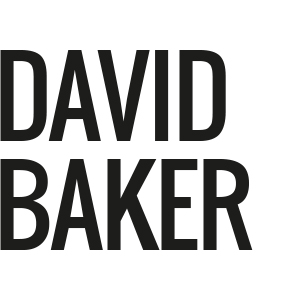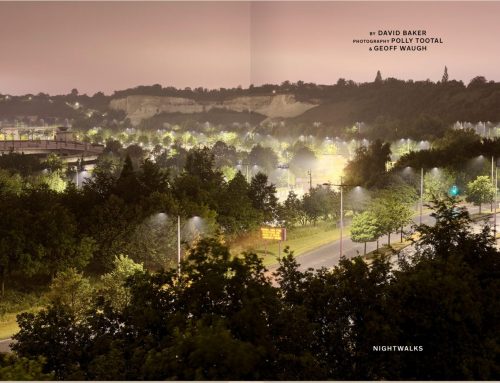Forget the time management, it’s all about attitude
Vida Simples Brazil, October 2016
(originally published in Portuguese)
In 1930, the British economist John Maynard Keynes, said that, within 100 years, we would all be working a 15-hour week. Technology would have taken so much work away from us that we would be spending most of our time in leisure. In fact, of course, almost the opposite has happened. Many people are working 40-, 50-, even 60-hour weeks and technology is keeping them connected to work even when they are at home or on holiday. Work has somehow taken over our lives. And those dreams of a work/life balance seem to have become even less easy to attain.
I think there are two reasons for this. One is technology itself. With the always-on internet we have invented a tool that we don’t quite yet know how to use. Because our devices are connected all the time, we feel that we have to be connected too. And that means that work, which never sleeps (and bosses who don’t seem to sleep either) can grab our attention, whatever else we are doing.
But the other reason is that we have made been brought up to make work the most important thing in our lives. We use it for so many things beyond simply generating an income. We tie our identity to it (“I’m a lawyer”), our sense of success (“I got a promotion today”), our sense of purpose (“What my company is doing will change the world”) and our status (“I run a team of 20”). And, in doing so, we hand over to it so much responsibility for our happiness. The result is that when work clashes with other things in our lives – seeing our family and friends, reading books or listening to music, doing hobbies or simply spending time with ourselves – work always wins the battle. Like the banks during the financial crisis, we have made work too important to let down.
But let it down we must. As David Whyte, A British writer who has thought about this topic a lot, likes to say, work is just one of the “partners” we spend our lives in a relationship with. It’s an important relationship, but, he argues, we are at the same time “married” to two other important parts of our life. These are our time with others – our real partner, our friends and family, the world; and our time with ourselves – that special relationship we have with our own health, wellbeing, dreams and values.(His book is called The Three Marriages.) And, he says, those other two marriages, like real partners, deserve as much love and attention as we give to work.
The trouble is, as we know when we juggle any parts of our life that conflict, it’s not straightforward simply to pay more attention to the parts that we are neglecting. There are only 168 hours in the week and all of us need a big chunk of that just to sleep. So, if we want a better work/life balance, we need, instead, to downgrade the attention we pay to work, the importance we give it, and free up space for the other two. Only then will we be able to pay more attention to the other parts of our lives that feel neglected.
That is not going to be easy, of course. That sense of purpose, of status, of reward are good reasons why we feel so attached to the world of work (and why unemployment and retirement can be so scary). And we need to let go of them gently and sensitively.
A good way to start is to do an exercise we often do at The School of Life: making a list of times when we have felt most alive, when we have had a real joy in who we are and what we have done. Try it now on a piece of paper. Write down six or seven moments in your life when you have felt life buzzing through you, when you have felt really glad to be alive.
Now take a look at your list and circle those that have had to do with work. There will be some – maybe a great meeting with a client, a time when you helped out a colleague who was stuck with a project, an occasion when you went the extra mile and really used your skills and effort to crack a problem. These are important moments and we need to celebrate them.
But others will come from other parts of your life. Take a look at the ones that were to do with other people: your relationships and friendships, moments when you gave and received love and compassion, chance meetings with strangers who changed the way you see the world, and so on. Circle them in a different colour and take a moment to celebrate them too.
Yet others will come from the special times you have spent with yourself: moments of quiet reading or reflection, a long walk along a beach, times when you have overcome a serious difficulty and discovered your own capability for resilience. Circle them too, in a different colour.
What you have drawn is a map of David Whyte’s three partners in life: our work, other people and ourselves. Now take a look and ask yourself if you give each of these partners the value they deserve. The chances are that part of your brain ranks your work “partner” above the other two. That’s just the effect of the culture we live in. But you can change that. You can make a walk on the beach, a moment of deep friendship, a hobby that really engages you, just as important as cracking a work project or getting a promotion.
That adjustment won’t be easy, as we are told that work is more important than anything. Except it isn’t. It’s just a part of the varied lives we lead and other parts of life are just as fulfilling, rewarding… and important.
Of course, as soon as we think about downgrading work and spending some of the time we currently use for it on other things, we go into a panic. We can imagine the boss getting annoyed, our colleagues seeing us differently, losing our jobs even. But that’s just our imagination, which is great at catastrophising. Realistically, if we spent less time at work, but worked more smartly, doing things that really drew on our skills and gave us a deep sense of purpose, the quality of our work would improve and so would our reputation in the eyes of the people we work with. It will take some adjustment and it will require conversations with our colleagues, but working more smartly can open up so many possibilities both in work and outside of it.
At The School of Life, we like to ask the question: “Are we living the life we want to be living, or the life other people want us to live?”. When it comes to work, most of us are living a life dictated by others. That’s part of the deal we make when we exchange our labour for money. But those others are not living our life, we are. And we have the right to work in a way that gives us both satisfaction and reward and the space and the energy to thrive in all the other areas that make our lives the wonderful adventures they are.






